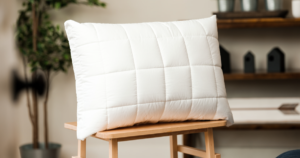The recommended amount of sleep for a healthy adult is at least seven hours. Most people don’t need more than eight hours in bed to be well rested. Many factors can interfere with a good night’s sleep — from work stress and family responsibilities to illnesses. It’s no wonder that quality sleep is sometimes elusive. Developing healthy sleeping habits starts with commitment.
Nicotine is another stimulant that is known to negatively affect sleep quality. In addition to its other health risks, such as cardiovascular disease and cancers, smoking is linked with insomnia, sleep apnea , and other sleep disorders. After turning off the light, give yourself about 20 minutes to fall asleep.

The effects of napping depend on the individual . Exposure to light during the day is beneficial, but nighttime light exposure has the opposite effect . While most research involves people with severe sleep issues, daily light exposure will most likely help you even if you experience average sleep.
Put a glass of water next to the bed in case you wake up thirsty. Keep a telephone with emergency phone numbers by your bed. Try to finish your workout at least three hours before you go to bed. This will strengthen the association between your bed and sleep.
While classical music has been shown to lower blood pressure and reduce stress, any music that you enjoy will help you quiet down and lift your mood. If you’re looking for some sounds that are specially designed to soothe, check out Headspace’s sleep music and sleepcasts. Pillow fill is important to consider if you suffer from allergies.
If you’re still awake and not drowsy, get out of bed. Just like kids, adults sleep better when they have a bedtime routine. Doing the same thing before bed each night can help prepare your body for rest and condition your brain for sleep. Stick to activities that promote relaxation, such as gentle stretching, writing in a journal, reading or meditation.
How you handle stress can play a significant role in your ability to fall and stay asleep. While stress isn’t all bad, when it turns into worry or anxiety, it can disrupt your sleep. If your busy mind is keeping you up at night, try practicing stress management techniques before you go to bed.
By the end of the first week the sleep-deprived subjects had gained an average of about two pounds. Over all, people consumed 6 percent more calories when they got too little sleep. Once they started sleeping more, they began eating more healthfully, consuming fewer carbohydrates and fats. Another important function of sleep is that it allows the brain to do some mental housekeeping.
If you often feel tired at work, long for a nap or fall asleep on your morning or evening commute, your body is telling you that it’s not getting enough sleep. In people with insomnia, daytime bright light exposure improved sleep quality and duration. It also reduced the time it took to fall asleep by 83% . Most studies show that regular exercise three-to-four times a week helps improve sleep. It’s usually best to exercise in the morning or afternoon.





















